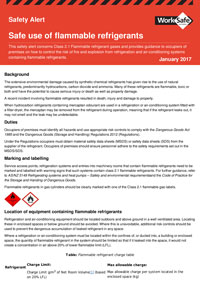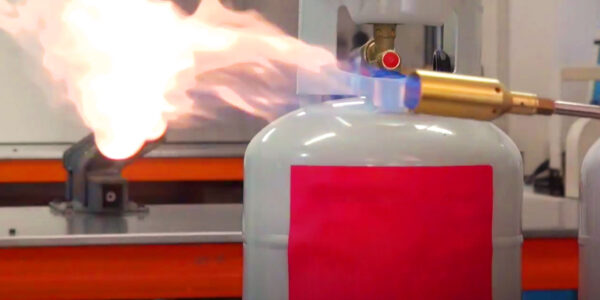WorkSafe Victoria issues safety alert following fatal HC fire inquest
- PostedPublished 30 January 2017
Following the coronial inquest into a June 2014 hydrocarbon refrigerant explosion that killed 34 year-old Barry Purtell and 52 year-old Dave Lobb at the Rochester Hotel in Victoria, the state workplace health and safety authority has issued a safety alert regarding flammable refrigerants.
Although evidence given at the inquest incorrectly blamed the use of an automotive refrigerant (no vehicle manufacturer has ever used or approved the use of hydrocarbons, so they are by definition not an automotive refrigerant) the WorkSafe alert makes no mention of HC use in automotive applications, although it does provide a comparison of various flammable synthetic and hydrocarbon refrigerants, R1234yf included.
It is clear to VASA members that unscrupulous or simply untrained people are retrofitting systems to flammables without applying any warning labels, something WorkSafe Victoria acknowledges in the alert:
“Refrigeration engineers, technicians, service persons and emergency responders must be vigilant as to the hazards associated with flammable refrigerants, including the need to use appropriate gas detection equipment. Where there is uncertainty as to what the system is charged with, proceed with extreme caution and identify the refrigerant, by testing if necessary, prior to engaging with the system.”
In addition to outlining the various safety-related obligations of property owners, dangerous goods codes and risk control measures where flammable refrigerants are used, The alert also makes the following common-sense recommendations about flammable refrigerant use:
- Flammable refrigerants should only be used to replace non-flammable refrigerants in existing refrigeration or air-conditioning systems when the system and components have been assessed as suitable to operate with the flammable refrigerant.
- Manufacturers can advise whether refrigeration or air-conditioning systems are suitable for conversion from non-flammable to flammable refrigerants.
- Alternatively, an engineering assessment can be undertaken to ensure that the system is suitable to be converted for use with flammable refrigerant. Such an assessment should be undertaken by a qualified and experienced engineer, for example, one registered on the National Engineers Register or an equivalent recognised body.
- Air conditioning equipment using flammable refrigerants should use a flammable gas detector alarm system for the air leaving the cooling coil.
Further information can be found at WorkSafe Victoria – Using flammable refrigerants and findings of the coronial inquest are expected to be published in late March.
- CategoriesIn Latest News
- TagsFlammable refrigerants, Hydrocarbon refrigerants




